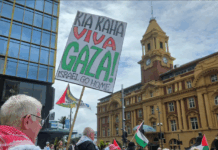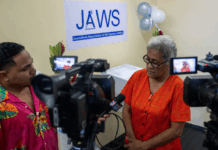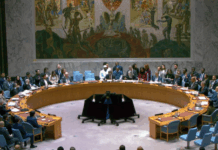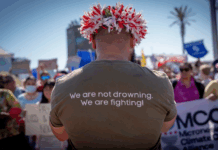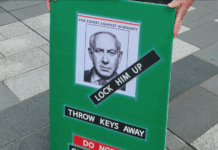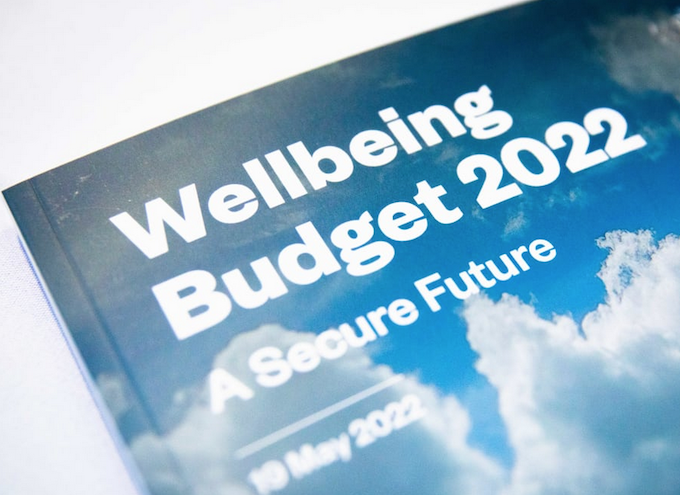
By Craig McCulloch, RNZ News deputy political editor
More than two million New Zealanders will get a one-off $350 sweetener as part of the Budget’s centrepiece $1 billion cost-of-living relief package.
The temporary short-term support is counterbalanced by a record $11.1 billion for the health system as the government scraps district health boards (DHBs) and replaces them with a central agency.
“Our economy has come through the covid-19 shock better than almost anywhere else in the world,” Prime Minister Jacinda Ardern said in a statement. She is in covid isolation.
- READ MORE: RNZ coverage of the Budget 2022 and reaction
- Ardern hails ‘budget for uncertain times’ as pandemic subsides
- Political parties respond to NZ Budget 2022
- Other Budget 2022 reports
“But as the pandemic subsides, other challenges both long-term and more immediate, have come to the fore. This Budget responds to those challenges.”
Ongoing uncertainty over inflation, covid-19 and the Russian invasion of Ukraine continue to cast a pall over the economy until at least the end of the year.
A large $19 billion deficit is expected this year, returning to surplus in 2025.
Treasury is forecasting house prices to ease and unemployment to drop as low as 3 percent.
Cost-of-living sweetener
New Zealanders aged 18 and over will be eligible for the $350 payment unless they earn more than $70,000 a year or already receive the Winter Energy Payment.
The sum will be paid in three instalments over August, September and October, working out at roughly $27 a week.
The temporary payment is estimated to cost $814 million — funded out of the remaining money in the covid-19 war-chest which is now being wound up.
NZ Finance Minister Grant Robertson delivers Budget 2022. Video: RNZ News
The support comes with a two-month extension to the fuel tax reduction and half-price public transport given the current high fuel prices.
New Zealanders who have a community services card will continue to get half-price public transport permanently from mid-September.
“While we know the current storm will pass, it’s important we do what we can to take the hard edges off it now,” Ardern said.
The government will also rush through legislation under urgency over the next few days to crack down on supermarkets in an effort to reduce grocery bills.
The legislation will ban supermarkets from using restrictive covenants to prevent competitors from accessing land to open new stores.
Ministers flagged further announcements in response to the Commerce Commission’s recent report in the sector “in the coming days”.
Health service
The Budget contains “the largest investment ever in [the] health system” — $11.1 billion — as the government presses ahead with its plan to replace DHBs with a centralised health service.
An initial $1.8b annual investment this year will help clear DHBs’ debt, giving the replacement Health New Zealand service and Māori Health Authority a “clean start”.
Health Minister Andrew Little said the 20 DHBs had collectively run annual deficits in 12 of the 13 years since 2008.
“As Health NZ takes over the books from the 20 DHBs on 1 July, a funding boost is being provided so the national system can start with a clean slate.”
The Māori Health Authority will get $168m over four years to directly commission hauora Māori services.
New Zealand’s drug-buyer Pharmac will also get an extra $191m over the next two years – in what Little says is the medicine budget’s “biggest-ever increase”.
It brings total funding to $1.2 billion which is 43 percent higher than when Labour was elected in 2017.
“Pharmac has assured me it will use this funding to secure as many medicines on its list as it can, with a focus on better cancer treatments, to ensure as many New Zealanders as possible benefit from this biggest-ever increase to its medicines funding,” Little said.
More than $166 million has been put aside over four years for ambulance services, adding more than 60 vehicles to the road fleet and about 250 more paramedics and frontline staff. Another $90.7 million will go towards air ambulance services to replace ageing aircraft with modern helicopters.
The Budget increases dental grants for low-income families from $300 to $1000 in line with Labour’s 2020 campaign promise.
A new Ministry for Disabled People is also being established at a cost of $100 million.
Housing support
While the housing market is showing signs of slowing, the Budget includes more support for first home buyers with funding available for about 7000 more grants.
House price caps across regions have been increased to line up with lower quartile market values for new and existing properties.
It means some significant shifts — both Wellington’s cap and Queenstown’s jump from $650,000 to $925,000, and Tauranga’s jumps from $600,000 to $875,000.
The income caps remain the same but will be reviewed every six months along with the new house price caps.
A new $350 million housing fund has also been set up where not-for-profit developers can apply for grants to build affordable rental accommodation.
Education equity
Replacing school deciles is the single biggest area of new spending for education.
The Budget provides more than $80 million a year for the equity index which replaces deciles as the measure of disadvantage in schools.
Most of the money, $75 million a year, will go directly to schools, adding to the $150 million they currently receive through the decile-based system.
The budget increases school operations grants and tertiary and early childhood education subsidies by 2.75 percent.
There is also $266 million over four years to give early education teachers pay parity with school teachers.
In tertiary education, the Budget provides $56 million a year to pay for an expected increase in enrolments next year and in 2024.
There is also $40 million for modernising polytechnic facilities.
Māori health, wellbeing
More than half a billion dollars is being pumped into the Māori Health sector with $579.9 million going towards Māori health and wellbeing.
The Māori Health Authority, Te Mana Hauora, is set to be launched July 1 and will receive $188.1 million over four years for direct commissioning of services.
Some $20.1 million will go to support iwi-Māori partnership boards, and $30 million will be invested into Maori providers and health workers to provide support and sustain capital infrastructure.
Lack of workforce capability has been identified as a key factor in being able to bolster Te Mana Hauora — and $39 million will be used for Māori workforce training and development to support them within the new health system.
The $579.9 million invested in Māori health and wellbeing is on top of the $11.1 billion health allocation.
This article is republished under a community partnership agreement with RNZ.



